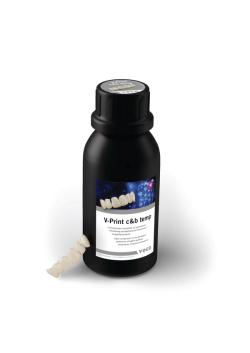- About Us
- Advertise
- Editorial
- Contact Us
- Terms and Conditions
- Privacy Policy
- Do Not Sell My Personal Information
© 2025 MJH Life Sciences™ and Dental Products Report. All rights reserved.
2021 Materials Survey: Stronger & Better Looking
Increased durability and enhanced esthetics are the top factors when it comes to choosing a new material. Find out what material preferences matter most with the Dental Products Report® 2021 Materials Survey.
Chemistry remains a vital part of dentistry, and like most technologies, the chemistry of dental materials continues to evolve and improve. New materials often bring enhanced physical and esthetic properties, new ways to use them, and the latest approaches to familiar situations. The Dental Products Report® 2021 Materials Survey looked at what enhancements mean the most to readers like you and how you can evaluate new material options for your patients.
The 2021 Materials Survey asked many of the same questions as the Dental Products Report® 2020 Materials Survey, and many of the results were similar. But preferences do change over time, and there were some interesting shifts in the data from one year to the next. Read on to see what type of materials the Dental Products Report® audience prefers and what capabilities or improvements are most likely to get the industry interested in new material innovation.
Your Go-To material Selections
Material preferences remained fairly stable year over year. The most popular choice for crowns and composites in both the posterior and anterior remained the same this year, but there were a few notable shifts. Universal composites continue to earn their title, but flowable composites grew more popular in both areas of the mouth, with twice as many survey respondents in 2021 saying they prefer a flowable in the anterior compared with 2020. When it comes to crowns, zirconia remains the top choice of more than half the respondents.
Materials Self Assessment
Even when a material is new, dentists still prefer something with a track record. This is demonstrated by the fact that half of the 2021 Material Survey respondents said they want to see published research on new materials before bringing them into the operatory. This was up from the 37% who said the same thing last year. The second most popular choice was a tie between the early adopters and the wait-and-see crowd.
Pandemic Impacts
This past year was especially hard on dental practices, and COVID-19’s impact affected the ways materials were purchased and managed. Many practices were conservative and reduced purchasing and inventory, but a fifth of respondents said they increased inventory, possibly to ward off the impact of supply chain issues.
Factoring the Optimal Material Properties
Close to 80% of respondents said enhanced durability is an important factor they look for when considering a new dental material, and this number is almost identical to the result of last year’s Materials Survey. However, it seems that esthetics grew in importance over the past year, as almost 10% more respondents said improving a material’s esthetics is very important. Another key factor that can make adopting a new material worth it is ease of use, which 97% of respondents ranked as important or very important.

 Download Issue: Dental Products Report June 2021
Download Issue: Dental Products Report June 2021

